With extensive industry and clinical experience in Complimentary Medicine, Sydney Naturopath Brooke Crabb has always been fascinated by the Mind-Body relationship. Harnessing the power of connection, heart centred stories and vulnerability, Brooke has identified the critical importance of personal growth to achieve health outcomes. Brooke now mentors practitioners and patients on growing their emotional toolkit to positively affect their biology.
In this Natupreneur Movement conversation Brooke shares her journey on how going straight in Naturopathy study from school at 18 shaped her ongoing exploration into life choices and changes for herself and her clients. She also explores how we can motivate and create behavioural change in our clients through establishing values.
Tune in or read the transcript below. Don’t forget to subscribe to the podcast so that you don’t miss an episode.
T: Welcome to another episode of the Natupreneur Movement Podcast. I am pumped again today to have another amazing, fascinating practitioner that I get to interview. Brooke Crabb is going to be present at NatEx and I can’t wait to dive into all of the things she loves about her work, life, and herself. Hi, Brooke!
B: Hi, Tammy. So nice to talk to you.
T: You, too! So, you absolutely love what you do, right?
B: Yes, absolutely. I do. Yeah.
T: Has it always been like that?
How She Got To Loving Her Work
B: Definitely not! I’ve had quite a few evolutions with the direction that I wanted to take with my career. I started studying naturopathy when I was 18. So I was fresh out of school. I wasn’t quite aligned with my values and what it meant to be an adult yet. So I was learning all this incredible information but not quite sure how I could apply that in the real world.
Particularly because, you know, I also wanted to have an active social life and also wanted to have a bit of self-discovery, myself. So, when I graduated my course, I did a bit of travelling and that actually helped to get me on the path to figuring out what I wanted to do with this life.
When I came back from my travels, I started working in a really busy practice. That was such an incredible experience shadowing a practitioner that had a lot of experience and then moving up into a senior level within the practice. What I noticed was that I was living this incredible life as a practitioner. But in my own personal life, I was still trying to figure out who I was and where I fit in the world.
At the time, I was actually living in a different state. I’m from Sydney but I was living in Western Australia. When the time came for me to move back from Western Australia to Sydney, I started working at a large corporate in sales. That was kind of a different step and it didn’t light me up inside like being client-facing did.
Then I realised I had this strong desire to do more technical work so I moved into product development. That was really fantastic and I loved it. Then I moved into Regulatory Affairs as a natural progression and then. . .I fell pregnant.
Shifting Values
Once I fell pregnant and started my maternity leave, I had another shift in my values. That led me to start my own business going back to what I originally loved, which was being client-facing and working with people.
T: Yeah. Wow. Yeah, that’s amazing.
There are many practitioners who are listening. We all obviously come from a wide variety of backgrounds. I did my first uni degree in biotechnology technology straight out of school at 17 or 18 years old. Then, nine years later did my degree in naturopathy. And I’ve often wondered what the difference would have been had I gone there first. But like you said, that comes with the advantages of knowing it first. But it also comes with the disadvantages as you described on your personal journey. Not having the life experience to apply when it comes to naturopathy and around our core values of what we truly want in life, what’s in alignment with us, etc.
As a human, you’re still figuring that out and I think I’m still figuring that out, as well.
You Never Stop Figuring It Out
B: Absolutely. Each day I wake up and I go, “What am I going to do today? What does that look like?”
As I mentioned, it definitely hasn’t always been me loving my work and knowing where I fit in that space. But certainly doing clinical work really lit me up inside. It’s definitely a strong passion for me.
I particularly liked working with people who were struggling to make changes because I could relate. I was still figuring out what I wanted to do in my personal life, where I was living, and also within my professional life. So I could really strongly relate to some of the things people were experiencing around helping them to identify those barriers to change, as I went through it myself.
T: Yeah. Is that the bit that you love about consultative work? That you can really create behavioural change for people? As well as, of course, give them all the technical advice that you’ve had experience in understanding through the background of your other jobs.
B: I definitely felt that was a skill set that I wanted to expand on. Because there’s a common theme that I see – and I’m sure most practitioners see with their clients – of clients constantly beating themselves up.
What I really enjoy doing is helping people to identify the barriers to change and recognising that in order to move through those painful feelings, they need to make room for them. If beating yourself up with a way to change behaviour, then wouldn’t everyone be perfect?
Learning How To Change
So, that’s definitely something that I really wanted to expand my knowledge on. Particularly mental health and overcoming those adversities. But actually being okay to sit with them, too and having the love and the grief living alongside each other. You need to change in order to get these incredible results, but just being okay with who you are right now is what we’re going to start with. And then we’re going to work together so that you can create the changes that you want.
T: That was a game-changer in my practice when I started doing a bit of personal development, two or three years in. I started to recognise how wrong and how broken I was making the people who were coming to me because I had the audacity to think I could fix them. My background is in pathology so I was taught to constantly look for the things that are wrong. Through checking out what’s wrong, we can quite quickly and easily make that person wrong. And therefore, create a really interesting duality where that person doesn’t have all of what they have inside them ready to change and facilitate their own healing. It’s a really easy one to forget in the model that we’re taught, I feel.
B: Yeah, absolutely. I felt that that was an area that I needed to discover a lot more about which led me into further study. So I’m studying for my graduate degree in counselling.
But I’m also practising mindfulness-based stress reduction and acceptance commitment therapy with my clients because I can give them things that I know will help them, but are they going to make the changes when they get home?
That’s the reality. I’m the facilitator of change here, but the real change happens at home. It’s outside of our sessions. How are we going to get clients feeling primed to actually make the changes and change the way that they see the world?
Acknowledge Pain But Make Room for Joy
T: Absolutely. That’s another notion that we come out as a practitioner with. We’re taught all of the things to solve the problems per se. We’re taught remedies but as we go along and see a few more clients, we start to notice quite quickly that the therapeutic effect is often 80% or more from the conversation that happens. Trough the counselling perspective, I’m sure you’ve experienced that too.
B: Absolutely. It’s about acknowledging the pain that people are experiencing but also making room for the joy as well. Being able to live with those thoughts while going about your life and still enjoying things.
That was a shift in my practice. I could have some practical skills that I could teach people who were identifying their values and help them be able to hold on to what is important to them. And recognise that sometimes the goals they set didn’t align with the values they’d set, as well.
So that actually changed the way that I started prescribing, too. Because I realised that if we’re setting these goals but they don’t align with what is valuable to you, it’s never going to work out. It’s never going to be the outcome that you want and you’re going to come back in feeling defeated and deflated. It just wasn’t quite right for you in that present moment.
T: Absolutely. How would you go about finding your values? For any practitioners who are listening, how could you help them find their values? Because you mentioned right at the beginning that that was part of what was difficult for you to begin with, was that you weren’t sure what your values were and therefore you were out of alignment.
How would you find help a practitioner find their values?
Identifying Your Values
B: Good question! Actually, I will be running through identifying values at NatEx, so I’m really excited about doing that. But essentially, values are goals. So they’re quite dynamic. They are freely chosen and ever-evolving.
You might have something that you feel is quite valuable right now, that isn’t necessarily going to be a priority when you are confronted with another event or incident. So they kind of they shift and change. And they’re quite intrinsic, intrinsically rewarding. Values are something that you can find within yourself that sends you to your true north, that puts you on a path you know you want to take.
For example, some values might be that you prioritise your self-care. You prioritise compassion or connection. Values can also be things like you’re assertive, you like to learn a lot. It tells us a little bit about how you go about your day to day and what works for you.
So my partner and I did a values exercise the other night. I thought it’s quite nice to sort of check-in with each other’s values. And we also chose what we saw the other person’s values as being, too. It was interesting to see from his perspective what he observed in me, versus what I thought in myself.
So my core values are things like self-care, self-compassion, mindfulness. And they actually shift shape throughout the day. So sometimes the values oppose each other and I think, “that self-care priority is not going to be strong for me right now because I have to do something else that is not aligned with that.” For example, I want to go to the gym but I have to drop my daughter somewhere. So that action is not aligned with my self-care value, but that doesn’t mean they go away. It just means that will regain balance a little bit later when I am able to go to the gym and take that value back.
T: I’m intrigued about and I really enjoy actually exploring values. We talk a lot about them on our retreats. Because I often see from an outsider’s perspective or from a results-based perspective, how people actually prioritise other values than what they say they do. So it’s a really intriguing idea that your partner noticed certain values in you.
B: I thought that was really cool, too. It was his idea at the exercise to peek look at each other that way. A lot of things did align, but there were certain things he saw in me that I didn’t. It’s quite a nice exercise to see how other people see you.
I definitely find that being able to identify someone else’s core values changes the way that we go about their prescription and also how they’re going to work towards success.
Because they could say to me, “My value is exercise. I’d like to have more activity and fitness in my life. And then I’d say, “Can you rate out of 10 how realistic it is for you to actually achieve this fitness goal that you’ve set, say going to the gym 5 times a week.” If they then say, “Realistically, it’s a five out of 10. I’m probably not going to be able to do that,” it doesn’t mean that fitness isn’t value for them. It just means the goal we set is probably not going to work out.
Create Realistic Goals That Align With Values
T: Yeah, I find that people who value their family, they’ve got pictures of their family around or the first picture on their phone is a family member. They’re always prioritising time in their schedule to go to family events. It’s more likely that you can create a goal based around getting up three or four times a week to exercise so that on the weekend you can run around with your children, grandchildren, or whatever. It helps really hone in on that behavioural change for people when their goals truly align with their values.
Hopefully, that was a golden nugget for someone listening! If it was, make sure you go and check out what your values are. Have a think about it and take some time to really focus in on that.
So, the last two elements of the theme at NatEx are ‘Love Your Life’ and ‘Love Yourself. You mentioned that self-care was one of your biggest values and we’re trying to bring it into all aspects of NatEx. Be it playing in the ball pit, doing yoga or starting the mornings with meditation.
How do you prioritise self-care when it comes to you being a practitioner?
B: That’s a really good question. I have a 20-month-old daughter so we like to go to the park or go for walks. Definitely my self-care activities tend to be slow, restorative activities. Because I’m running a business and I’m also a student and I have lots of different things that take up my time, the slow activities really mean a lot to me. They help me to just ground myself. Even if it’s just sitting in the backyard and throwing a ball and just chilling out, I really value the slow.
Values And Practices Change As Life Changes
T: I really liked what you said before about how your values and practices change as your life changes. I remember when my son was as big as your daughter and just sitting in the backyard with bubbles, or going on a nature walk and collecting sticks and rocks was so powerfully important at the time when I was pretty much adrenally fatigued from being a mum and a business owner. Now that all my kids are at school, it’s really changed to energetic kinds of activities and it’s okay that things change. My body and my life need something different as the seasons of my life change.
B: I’ll have to take some B vitamins and get my energy going! But she is actually very high energy. That’s why I throw the ball. She loves to go and collect it and bring it back to me. So it’s getting her energy and my slowness. So chill out. It’s a really special time.
T: Awesome! Thank you so much for this conversation today! I’m so excited for everybody coming to NatEx to experience more of your wisdom when it comes to being able to create change themselves and for their clients, especially with the amount of experience you’ve had and the incredible knowledge base that you have around these things.
Thanks again so much, Brooke! We’ll be seeing you at NatEx!
You can find out more about Brooke Crabb by visiting her website or connecting with her on LinkedIn or Instagram.
See Brooke at NatEx 2020!
Brooke will be one of the amazing speakers at Natupreneur Experience 2020 coming up in February. Do you have your ticket yet? Don’t miss out Brooke’s wisdom, as well as all the other experiences, workshops, activities, and connections.
Get Your NatEx 2020 Ticket Now!

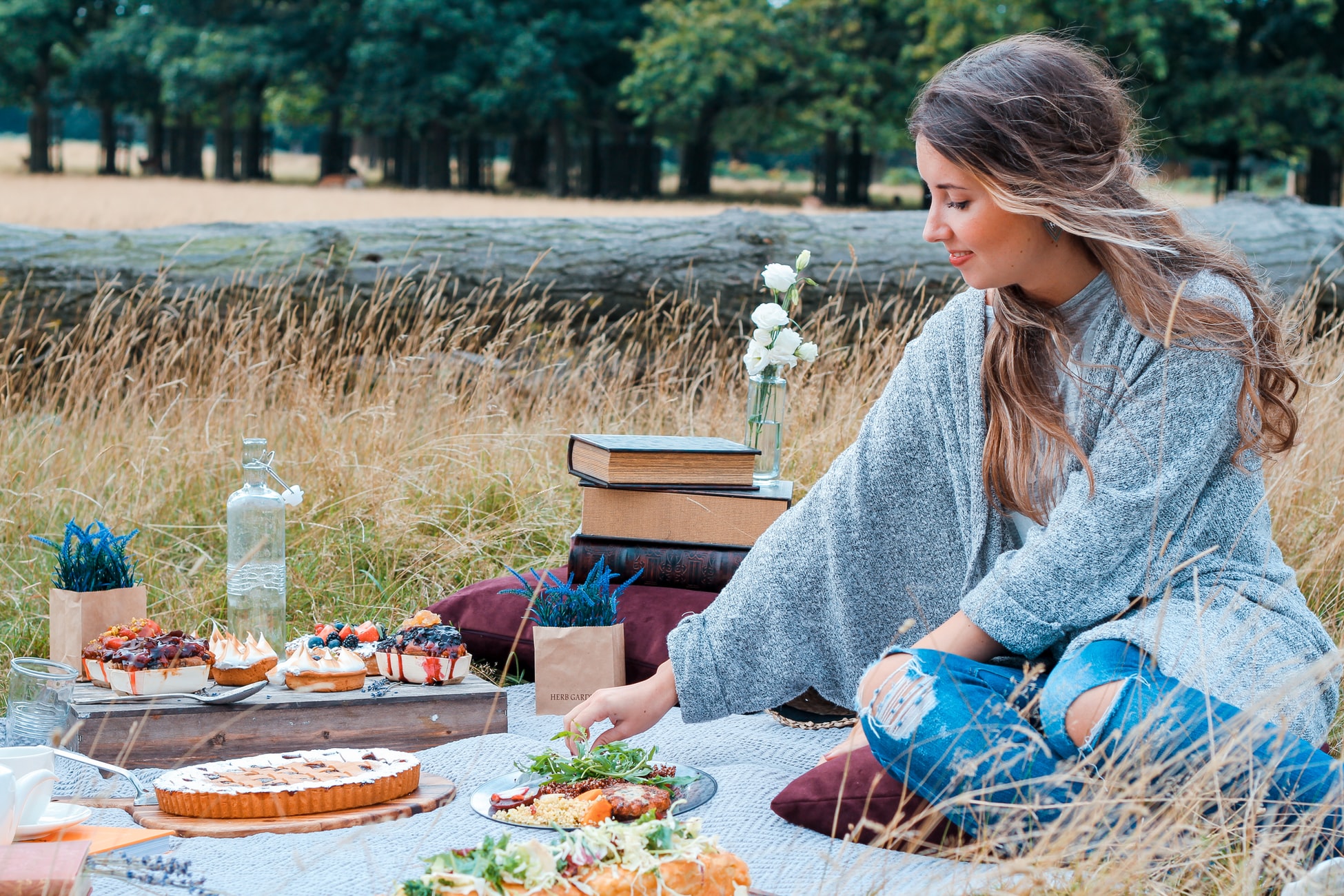
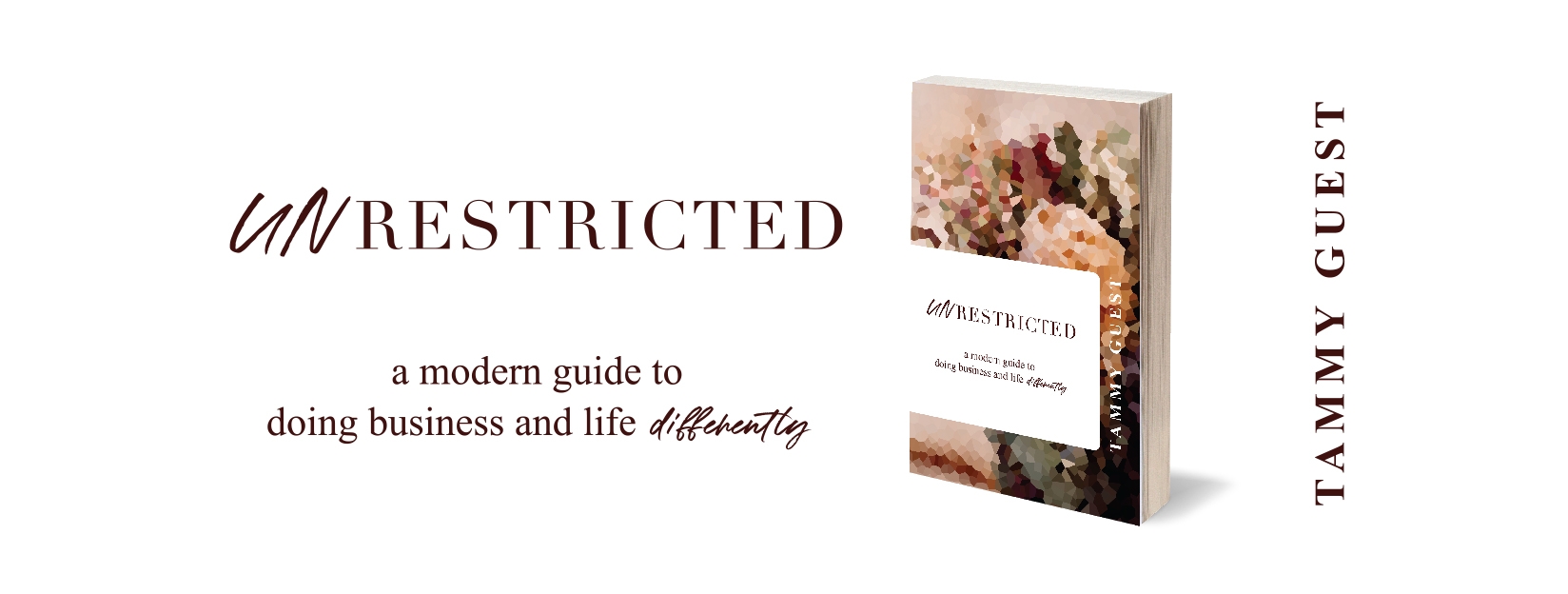
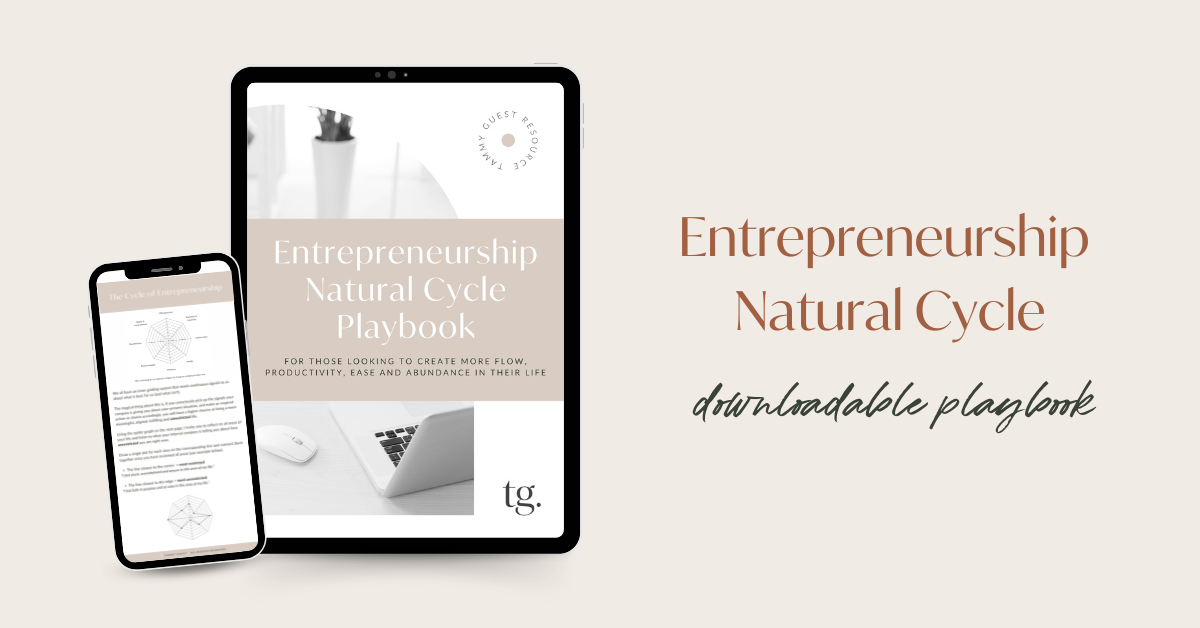


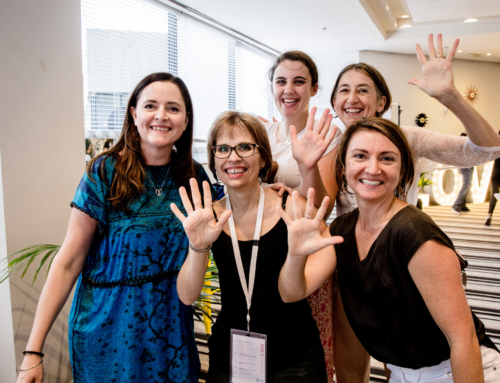


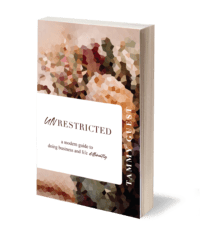
Leave A Comment